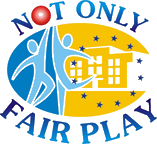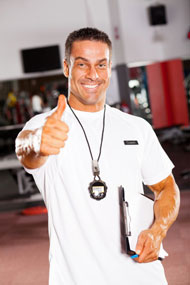
- Home
- Best
Practices - Toolkits
How to ... - Sport
Events - Guidelines
- Information
& Contacts - Project Management
A collection of student stories and initiatives about sport.
This section offers access to a collection of toolkits to promote sport at school.
-
 Physical Education Teachers
They are the main point of reference for students at school
Physical Education Teachers
They are the main point of reference for students at school
-
 Teachers
Teachers of all subjects can contribute to promote sport at school
Teachers
Teachers of all subjects can contribute to promote sport at school
-
 School Directors
Their support is a key element to promote sport at school
School Directors
Their support is a key element to promote sport at school
-
 Resources
A database of resources for teachers, PE teachers and school directors for the promotion of sport at school.
Resources
A database of resources for teachers, PE teachers and school directors for the promotion of sport at school.
Sporting events are organised in each partner country
Guidelines for policy makers willing to raise awareness on the importance of promoting sport in schools
Events
The Not Only Fair Play project has been promoted through conferences and articles.
Partnership
-
 Contractual Partners
From this section it is possible to access a description of each contractual partner of the Not Only Fair Play project.
Contractual Partners
From this section it is possible to access a description of each contractual partner of the Not Only Fair Play project.
-
 Schools
From this section it is possible to access information about the schools involved in the Not Only Fair Play Project in the 9 European countries involved.
Schools
From this section it is possible to access information about the schools involved in the Not Only Fair Play Project in the 9 European countries involved.
-
 Associated Partners
A number of associated partners officially joined the project in order to ensure the project sustainability by continuing to use the project deliverables over the next years.
Associated Partners
A number of associated partners officially joined the project in order to ensure the project sustainability by continuing to use the project deliverables over the next years.
This section of the Not Only Fair Play portal provides administrative information for the project contractual partners and for the European Commission, and is password protected.
Physical Education Teachers
Homepage > Toolkits > Physical Education Teachers

They are the main point of reference for students at school
Back to the Physical Education Teachers Toolkits
How to Motivate Students
Who Are Not Usually Involved In Physical Education Activities
A Toolkit for Physical Education Teacher
a) Good use of mentoring and coaching techniques;
b) Substantial group and team work opportunities;
c) High-quality demonstrations;
d) High numbers of practical learning opportunities;
e) High use of competitive situations;
f) High use of games-based activities for developing skills; and
g) Non-threatening use of target setting and monitoring progress.
All of these strategies are appropriate in the classrooms of other subjects, but can be missing from more “traditional” styles of teaching often seen in weaker subject teaching. Therefore, the fourth whole school strategy is supporting the sharing of practice between PE teachers and other subject teachers. This strategy brings about long-term, sustainable change in teaching practice that leads to empowerment of teachers to try new ideas confidently, and to pupils becoming more involved in contributing fully to their learning.
http://www.bbc.co.uk/news/uk-scotland-24608813
http://www.betterevidence.org/uk-edition/issue-10/using-physical-education-and-sport-to-raise-school-standards
http://www.youthsporttrust.org/media/7864224/2014_conference_-_ri_leaflets_006.pdf
- Motivation in physical education classesThis article presents a brief overview on teachers’ interpersonal style and its relation to students’ motivation.
- Effective Communication in SchoolsThis chapter of an online course presents suggestions for effective communication and case scenarios to self evaluate communication styles
- Stead R, and Neville M (2010), The Impact of Physical Education and Sport on Education Outcomes: A Review of Literature. Institute of Youth Sport, Loughborough University.
- Chaddock L et al (2012), Childhood Aerobic Fitness Predicts Cognitive Performance One Year Later. Journal of Sports Sciences, 30, 421–430.
- Raising your GameUsing Sport to Raise Achievement in English, Mathematics and Science.


